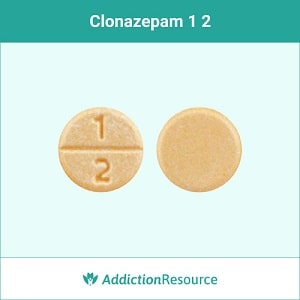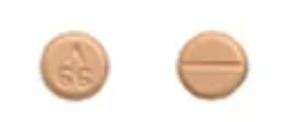99 vs. Orange Pill Clonazepam: Unpacking the Differences
The landscape of medication can feel complex, with seemingly subtle variations holding significant weight. When it comes to clonazepam, a medication used to manage seizures, panic disorders, and anxiety, understanding the nuances between different forms is crucial. This article delves into the difference between the “99” pill and the orange pill clonazepam, clarifying their significance and providing essential information. It’s important to note that this information is purely informational and does not constitute medical advice. Always consult with your healthcare provider for personalized guidance regarding your medication.
What is Clonazepam? A Brief Overview
Clonazepam is a benzodiazepine medication, a class of drugs that work by enhancing the effects of a neurotransmitter called GABA in the brain. GABA helps to slow down brain activity, leading to a calming effect. Clonazepam is primarily used to:
- Treat seizures: It can help control different types of seizures, including absence seizures, myoclonic seizures, and tonic-clonic seizures.
- Manage panic disorder: It can reduce the frequency and severity of panic attacks.
- Alleviate anxiety: It can help manage various anxiety disorders.
Decoding Pill Markings: The Role of Imprints
Pill markings, including numbers, letters, and colors, are critical for identifying medications. These markings serve as identifiers, allowing pharmacists and patients to confirm they are taking the correct medication. The FDA requires pharmaceutical companies to mark their products for this very reason. This is where understanding the “99” pill and the orange pill comes in.
“99” Pill Clonazepam: What Does it Mean?
The “99” marking on a pill is a unique identifier assigned by the manufacturer. In the case of clonazepam, the “99” imprint typically refers to a specific manufacturer and dosage.
- Manufacturer: The “99” marking usually indicates that the clonazepam is manufactured by a specific pharmaceutical company. Without knowing the specific manufacturer, it’s difficult to determine the precise characteristics of the pill.
- Dosage: The “99” marking usually corresponds with a specific dosage of clonazepam.
- Appearance: The appearance of the pill (color, shape, and size) also helps in identification.
Orange Pill Clonazepam: Demystifying the Color
The color of a clonazepam pill, in this case, orange, is another identifier. The color, like the imprint, helps in distinguishing the pill from other medications and different dosages of clonazepam.
- Color as an Identifier: The orange color is part of the pill’s overall identification.
- Dosage Significance: The orange color often corresponds with a specific dosage of clonazepam, but it’s crucial to verify this with your prescription.
- Manufacturer Variation: The color is also a clue as to the manufacturer.
Key Differences Summarized: “99” vs. Orange Pill
The primary difference between the “99” pill and the orange pill clonazepam lies in their unique identifiers:
- Imprint: “99” is a specific marking often used by a particular manufacturer.
- Color: Orange is a color identifier, also indicative of a specific manufacturer and dosage.
- Dosage: Both the imprint and color are used to help identify the correct dosage.
- Manufacturer: The specific manufacturer will determine the pill’s formulation.
Important Note: The exact dosage and manufacturer associated with the “99” pill and the orange pill can vary. Always verify the details with your pharmacist or healthcare provider using your prescription information.
Dosage and Formulations: A Crucial Consideration
Clonazepam is available in various dosages, typically in tablet form. The strength (e.g., 0.5mg, 1mg, 2mg) will be reflected in the pill markings and potentially the color. Always take the prescribed dosage as directed by your doctor. Never adjust your dosage without consulting your healthcare provider.
Safety Precautions and Important Reminders
- Never share your clonazepam: This medication is a controlled substance and is prescribed specifically for you. Sharing it with others can be dangerous and illegal.
- Avoid alcohol and other central nervous system depressants: These substances can increase the sedative effects of clonazepam, leading to dangerous side effects.
- Be aware of potential side effects: Common side effects include drowsiness, dizziness, and coordination problems. Report any concerning side effects to your doctor.
- Do not stop taking clonazepam abruptly: Sudden discontinuation can lead to withdrawal symptoms. Always taper off the medication under the guidance of your doctor.
- Inform your doctor about all medications: This includes over-the-counter drugs, supplements, and herbal remedies, as they can interact with clonazepam.
Conclusion: Prioritizing Safe Medication Practices
Understanding the differences between “99” pill clonazepam and the orange pill is crucial for medication safety. While pill markings and colors offer valuable clues, always verify the medication’s identity and dosage with your pharmacist or healthcare provider. This information is for educational purposes and should not replace professional medical advice. Prioritize open communication with your doctor and pharmacist to ensure safe and effective management of your health.
Frequently Asked Questions (FAQs)
Are the “99” pill and the orange pill the same medication?
Yes, both refer to clonazepam. However, the specific manufacturer, dosage, and formulation may vary depending on the pill’s markings and color.
How do I know if I’m taking the right dosage?
The pill markings and color, along with your prescription, should help you identify the correct dosage. If you are unsure, ask your pharmacist or healthcare provider.
Can I switch between different brands/manufacturers of clonazepam?
It is generally safe to switch between different brands/manufacturers of clonazepam if the dosage is the same. However, it’s always best to inform your doctor or pharmacist about any changes to your medication.
What should I do if I accidentally take the wrong clonazepam pill?
Contact your doctor or pharmacist immediately. They can provide guidance based on the specific pill and your health history.
Where can I find more information about clonazepam?
Consult your doctor, pharmacist, or reliable online resources like the National Institutes of Health (NIH) or the FDA.



